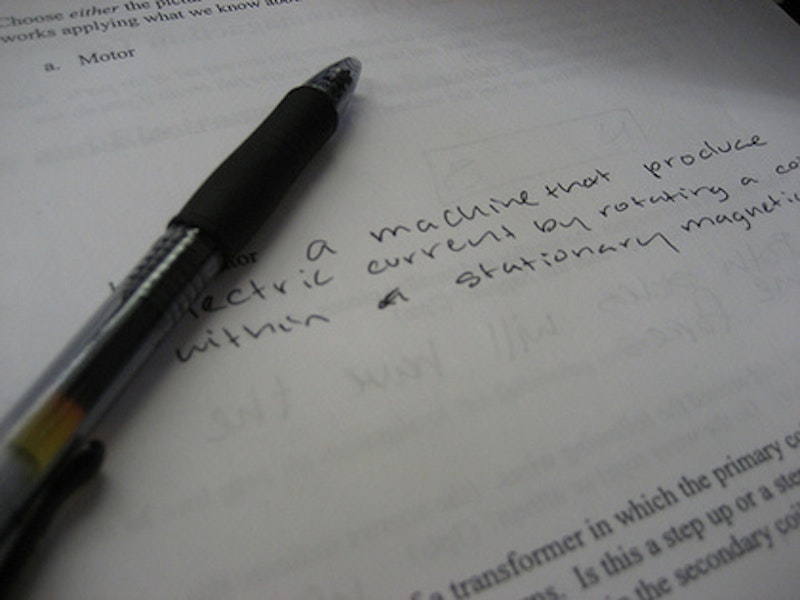First off, workers are more prone to lie in an email:
In one study, Belkin and her colleagues handed 48 full-time MBA
students $89 to divide between themselves and another fictional party,
who only knew the dollar amount fell somewhere between $5 and $100.
There was one pre-condition: the other party had to accept whatever
offer was made to them.
Using either e-mail or pen-and-paper communications, the MBA students
reported the size of the pot—truthful or not—and how much the other
party would get.
The results were staggering. Students using e-mail lied more than 92
percent of the time, while those using pen-and-paper lied slightly less
than 64 percent. The rate of lying was almost 50 percent greater among
those using e-mail than with those using pen-and-paper.
E-mailers also said they felt more justified in awarding the other
party just $29 out of what they claimed was a total pot of about $56.
And then, perhaps more damning, pens and paper affect creativity more than computers:
Paper, pencil and books are the key to developing one's creativity and
maximizing one's intelligence, says Dutch psychologist Christof van
Nimwegen.
The Dutch researcher recently completed a PhD dissertation at the University of Utrecht about the effects of software on the functioning of the human brain.
In "The Paradox of the guided user: assistance can be counter-
effective," van Nimwegen asked two groups to perform the same tasks.
The first was allowed use a computer; the second group only got a pen and pencil.
The second group executed all tasks faster and performed
substantially better. In addition, their solutions to complicated
problems were more creative.
Nicholas Carr might be more right than he knows.

